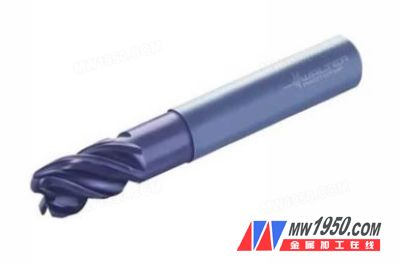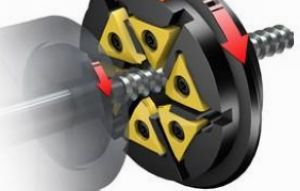1, SMT Splice Clip and SMT Stapler Splice Clip is mainly used with SMT Splice Tool Splice SMD Carrier Tape, the advantages: pure brass precision stamping, thin, soft and tough, Splice Tape solid and reliable, and easy to cut, does not affect the SMT Machine Cutters work with Feeder.
2,SMD Brass Splice Clip for Joining Carrier Tapes. Used for all carrier tape. Box of 4000PCS
3, SMT Stapler Splice Clip is used for all carrier bands. A small box 500psc a big box 4000PCS
SMT Splice Clip,SMT Copper Splicing Clips,16mm Film Splicing Tape,SMT Brass Splice Clip,Smd Splice Clips, Smt Clip And Splice ShenZhen KDW Electronics Co.,Ltd , https://www.smtsplicetape.com
Defend life safety with "precision tools"
The manufacturing of medical device components is closely tied to the use of specialized **tools**. To meet the unique demands of medical parts, the **tool** industry continuously innovates, with advancements in materials, design, and concepts at various levels. The maturity of this industry has significantly benefited the medical field by enabling precision, efficiency, and reliability.
**Walter: Tackling the Challenges of Difficult Materials**
In the medical industry, tolerances in the micrometer range are standard, making the choice of the right **tool** crucial. For example, even basic drilling operations require lubricants to reduce friction, manage heat, and remove fine chips effectively. When producing high-end medical devices, sharp, smooth-running **cutting tools** are essential to achieve burr-free surfaces. Standard options include high-speed steel or solid carbide drill bits. Walter’s Titex drill bit, from the German company Walter Group, is designed for challenging materials like titanium, stainless steel, precious metals, and composites. It can process holes as small as 0.05mm up to 46mm, with internal cooling available for drills down to 0.75mm. Their Protostar series of solid carbide **tools**, ranging from 0.3 to 20mm in diameter, are used in dental restoration. Based in Germany, the Pratt plant supplies taps and thread milling cutters for titanium alloys, including bone screws and joint implants. Even thread milling cutters as small as 1.6mm are used for dental applications.

**Precision Tools for Transplant Devices**
Walter has long been involved in the medical sector, focusing on ultra-precise devices such as bone screws and implants. Their indexable carbide inserts (WSM10, WSM20, WSM30) are used in multi-axis **machines**, offering stability through Tiger-tec® coatings and microcrystalline substrates. These features enhance heat resistance and prevent built-up edges, ensuring clean cuts. For titanium, which is widely used in medical parts, new geometries like NFT, NMT, and NRT are tailored for finishing, medium, and roughing operations respectively. These inserts work seamlessly with Walter’s Toolbar XLDE system, simplifying user operations.
**Custom Composite Tool Solutions Save Time and Money**
To stay competitive globally, manufacturers must produce high-quality products efficiently. Grafts made from high-alloy steel, titanium, or titanium alloys present significant challenges due to complex geometries and material properties. A single composite **tool** can replace three traditional **tools**, reducing machining time and costs. For instance, processing 1,500 parts with a 2-minute saving per piece could save 50 hours of machine time. Walter’s “CATexpress†service offers custom non-standard **tools** with a reduced lead time of just 14 days instead of 6–8 weeks. This is achieved through a proprietary **software** program that streamlines the ordering process.
**Sandvik Coromant: Perfecting Medical Small Part Machining**
Some cutting **tool** innovations have greatly improved the efficiency of small part machining in the medical industry. Advances in slitting **machines** and cutting **tools** have increased machine utilization and productivity. Notably, threaded cyclone milling and high-pressure cooling (HPC) have raised performance standards.

**Thread Whirl Milling**
Thread whirl milling is widely used in the medical industry for high-volume production of slender screws, especially those made from high-performance metals. This stable process is ideal for demanding materials. The robust cutting edge allows for more advanced **tool** materials with better wear resistance. Longer **tool** life reduces machine downtime, while improved edge toughness ensures sharper, safer cuts. These advancements support economic benefits in medical part manufacturing.
New blade materials, such as PVD/TiAlN-coated inserts, offer excellent adhesion and durability, enhancing performance in thread whirl milling. Operational safety and **tool** clamping are also critical, ensuring reliable and accurate blade positioning. The new blade clamping concept improves both accuracy and safety, making **tool** changes faster and easier.
**High Pressure Cooling System**
High pressure cooling systems are now replacing conventional coolants, offering numerous advantages. They improve chip control and machining performance, especially when working with difficult materials like superalloys and mild steel. New solutions allow precise coolant delivery directly into the cutting zone, enhancing safety and efficiency. This is particularly useful on slitting **machines**, where space is limited and tool changes are challenging.
Turning **tools** with HPC functions typically feature three nozzles that direct coolant precisely onto the cutting edge. This helps manage heat, reduce **tool** wear, and control chip formation. The "hydraulic wedge" effect between the chip and the insert’s face enhances chip removal, leading to better surface finish and consistent tolerances.
On **machine tools** suitable for small parts, high pressure cooling systems simplify **tool** changes. A single screw and spring-loaded wedge allow quick clamping and unclamping, ensuring accurate and safe cutting edge positioning. Combined with internal cooling and a simple coolant connection, this system enables efficient machining of even the most challenging materials.
